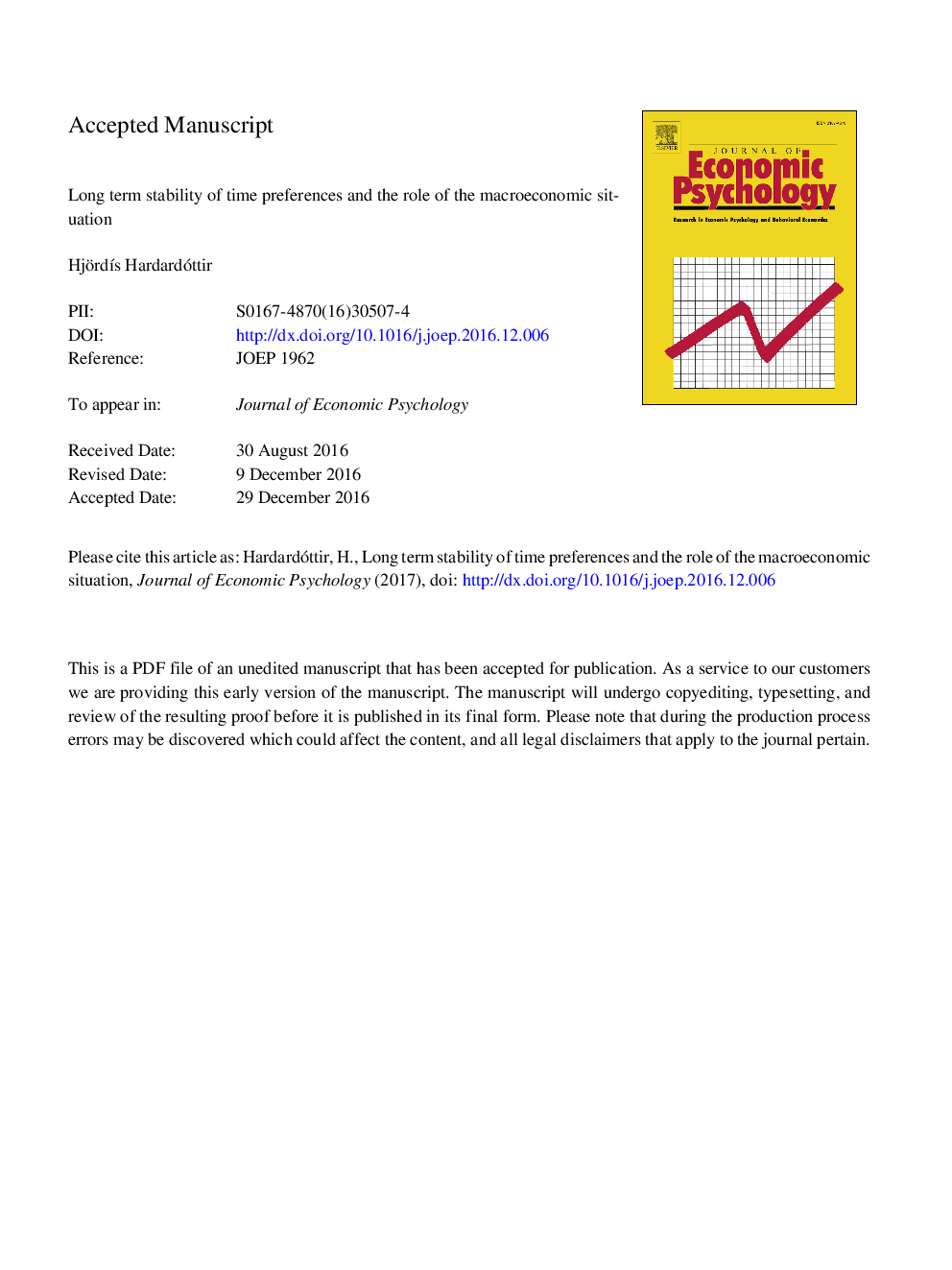ترجمه فارسی عنوان مقاله
ثبات بلند مدت تنظیمات زمان و نقش وضعیت اقتصاد کلان
عنوان انگلیسی
Long term stability of time preferences and the role of the macroeconomic situation
| کد مقاله | سال انتشار | تعداد صفحات مقاله انگلیسی |
|---|---|---|
| 90255 | 2017 | 63 صفحه PDF |
منبع

Publisher : Elsevier - Science Direct (الزویر - ساینس دایرکت)
Journal : Journal of Economic Psychology, Volume 60, June 2017, Pages 21-36
ترجمه چکیده
ما به پایایی نظرسنجی مبتنی بر نظریه های زمان ذهنی در طول زمان با استفاده از داده ها از یک نظرسنجی پانل هلندی با افق بلند مدت نگاه می کنیم و می بینیم که رتبه بندی تنظیمات زمان بندی فردی پایدار است. مشاهده ساده ی ترجیحات زمان سنجی اندازه گیری شده نشان دهنده بی ثباتی در ترجیحات جمع شده است. به منظور روشن ساختن این بی ثباتی، ما نگاهی به رابطه بین وضعیت اجتماعی و اقتصادی فردی و ترجیحات زمانی و وضعیت اقتصاد کلان و تنظیمات زمان می کنیم. در حالی که ارتباط بین وضعیت اجتماعی-اقتصادی و تنظیمات زمان مشخصی را نشان نمیدهیم، متوجه می شویم که برای نمونه به طور کلی، صبر با رشد اقتصادی رابطه مثبتی دارد، اما با نابرابری درآمد رابطه منفی دارد. هنگام مطالعه چگونگی برآوردهای مختلف در گروه های درآمد، مشاهده می کنیم که عدم تقارن قابل توجهی در نحوه برخورد گروه های مختلف درآمد با تغییرات وضعیت اقتصاد کلان وجود دارد.

